Taking on Outdoor Challenges with Chaim Katz
Chaim Katz, a pioneer in adventure therapy within the Orthodox community, guides fathers and sons on challenging nature excursions. He believes that shared, powerful experiences like climbing hills and desert navigation open hearts and create real change. What happens when parents and sons struggle to connect with these challenges?
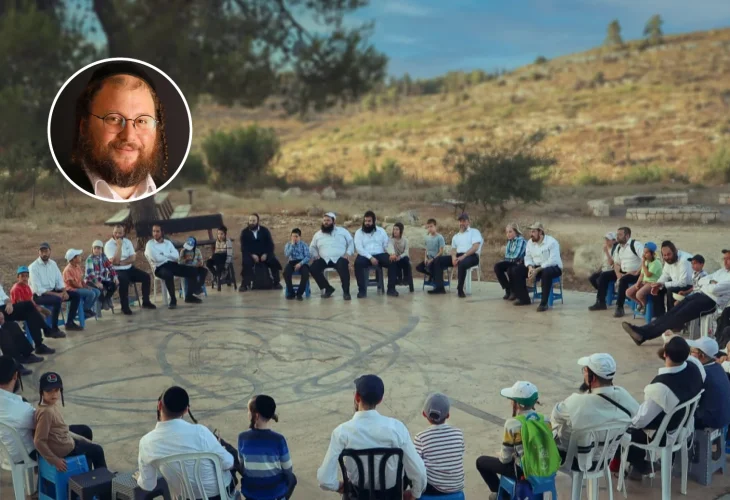 Chaim Katz (Photos: Yohanan Katz, Israel Cohen, Meir Drabermediker)
Chaim Katz (Photos: Yohanan Katz, Israel Cohen, Meir Drabermediker)"You might be experienced parents of large families, but how often have you had the chance to go with your child alone on an adventure where you climb hills, face extreme challenges, navigate, and overcome obstacles together?" asks Chaim Katz, who specializes in "adventure and journey-based therapy."
In recent years, Katz has made significant strides within the Orthodox Jewish community by introducing a therapeutic field previously unknown. "The foundation of all my work is summed up in two words: 'experiential learning'," he explains. "Just as there are art or animal therapies, there is 'adventure and journey-based therapy'. While well-known globally, it's less recognized in Israel and almost unheard of in the Orthodox community. I began specializing in it nearly twenty years ago and now hold seven certifications. I also teach others the method, offering courses on nature challenges and adventure therapy, approved by the Ministry of Education, to educators and teachers."
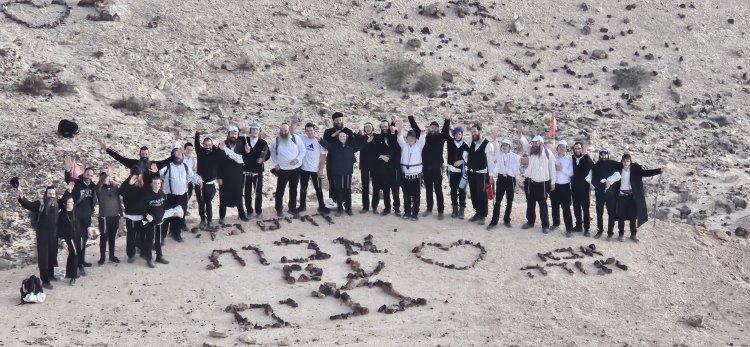 (Photo: Yohanan Katz, Israel Cohen, Meir Drabermediker)
(Photo: Yohanan Katz, Israel Cohen, Meir Drabermediker)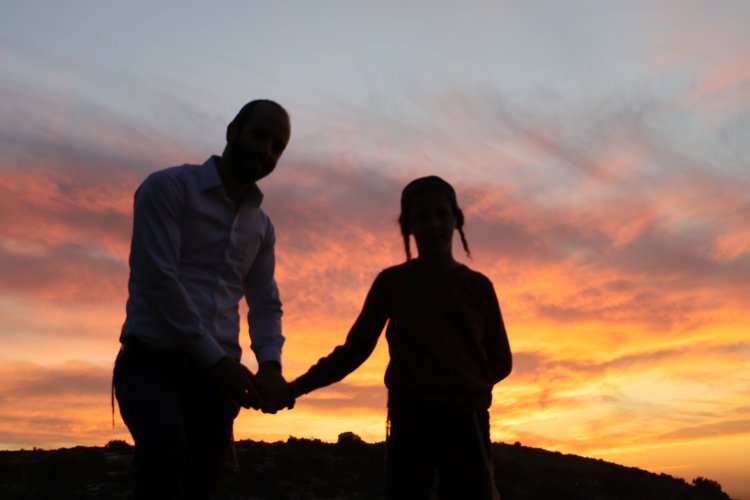 (Photo: Yohanan Katz, Israel Cohen, Meir Drabermediker)
(Photo: Yohanan Katz, Israel Cohen, Meir Drabermediker)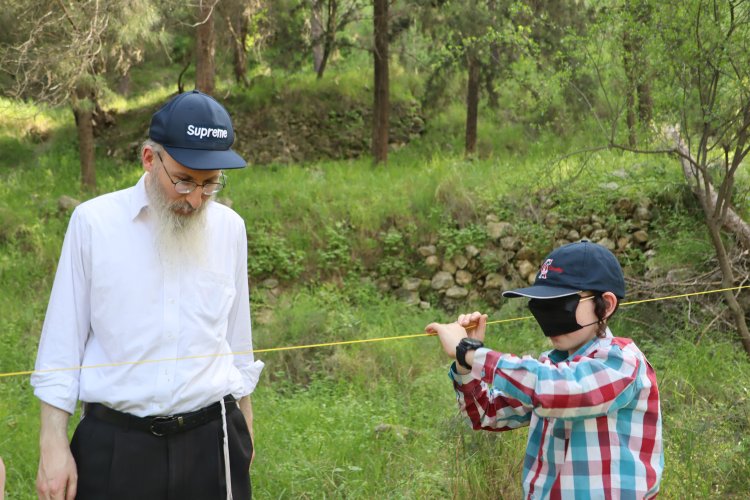 (Photo: Yohanan Katz, Israel Cohen, Meir Drabermediker)
(Photo: Yohanan Katz, Israel Cohen, Meir Drabermediker)"Every Child Needs Connection"
Katz's personal journey began about two decades ago in London, where he worked with at-risk youth, including managing a therapeutic boarding school with professional training and guidance. "We worked with teens, and it was nice, but we sought a real breakthrough for opening their hearts and making a lasting change," he explains. "Then I heard from the program’s psychologist: 'There's a faster way to reach the boys' hearts—shared powerful experiences.' I asked, 'What kind of experience?' and he replied, 'A nature journey'. That's how I first learned about adventure and journey-based therapy, which is attended by nearly 100,000 teens annually in the U.S."
In the following years, Katz returned to Israel and decided to start arranging joint journeys for fathers and sons. "Initially, I did this through the youth center in Bnei Brak, focusing mainly on children facing challenges or difficulties. The results were amazing, with emotional advisors noting how the journey achieved what a series of therapy sessions could not.
"But after several such journeys, I came to a different conclusion—it wasn’t right to focus only on challenged children. Most teens experience some level of conflict with their parents, especially fathers, and such a journey can strengthen the bond unprecedentedly. So, I began offering these journeys to 'ordinary' kids, from the most regular families, whether the fathers are prominent rabbis or educators, businessmen or employees. Across the board, the sons crave a connection and time alone with their fathers, often feeling they lack enough of this in their busy daily lives."
These are poignant observations. Parents invest so much in their children, so how can you say they don’t do enough?
"Of course, parents invest in their children, and I see this firsthand. However, more important than investment is the heart's involvement. A child sees where his father’s heart lies, noticing interest in a chat with him or a business call. For instance, often in my workshops, I ask this: Do you remember bumping into a dear friend on the street? How do you respond with your 'shalom aleichem'? You’d stop everything to chat, inquire, and care. In contrast, when returning home from morning prayers and meeting your child on his way to school, do you greet him with joy, or do you just mumble, 'Fix your kippah,' 'Tie your shoes,' or 'Why are you always late?" Katz pauses to underline, "The child senses where our heart is, and if we let him feel that we genuinely think of him, it will accompany him throughout life.
"I must clarify another point: Sometimes, we feel like we’re giving our child everything, yet he still becomes distant or detached. Don’t be alarmed; it’s a natural process that happens to almost everyone. However, if the foundation is solid, one needn't worry because the bond is like a kite on a string—sometimes the kite drifts far, winds are strong, and desires burn fiercely, but with a firm foundation, the string is eventually rewound, and the child returns home. This bond is crucial, and I personally suggest strengthening it through outdoor programs."
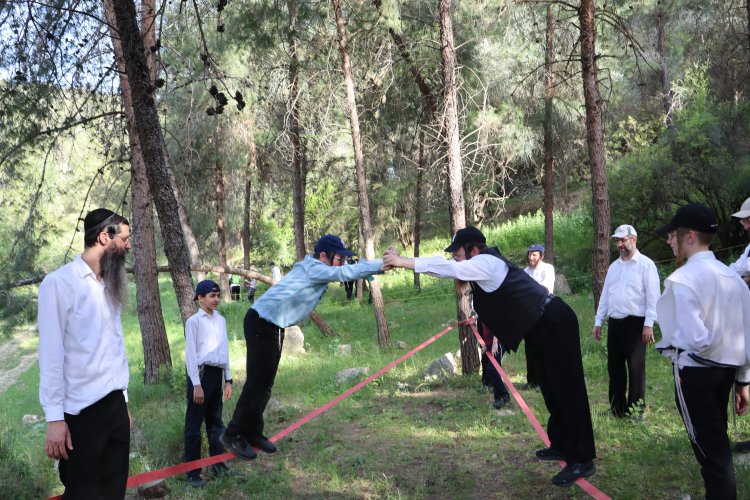 (Photo: Yohanan Katz, Israel Cohen, Meir Drabermediker)
(Photo: Yohanan Katz, Israel Cohen, Meir Drabermediker)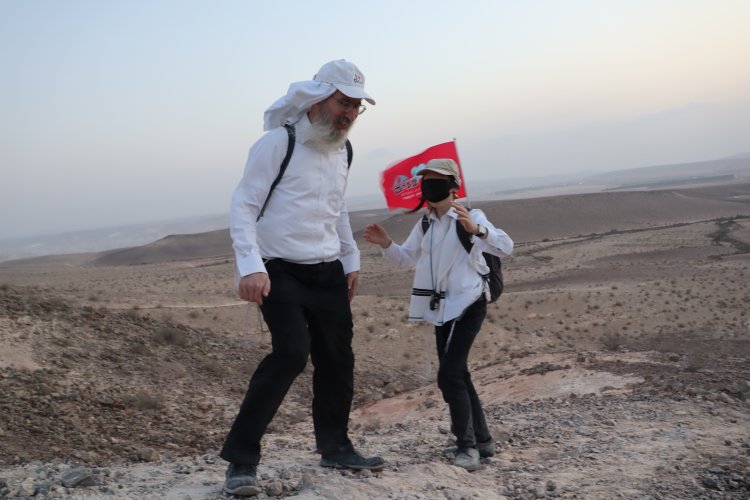 (Photo: Yohanan Katz, Israel Cohen, Meir Drabermediker)
(Photo: Yohanan Katz, Israel Cohen, Meir Drabermediker)Extreme Adventures
So what do the journeys you organize look like?
"The idea is to bring fathers and sons into the wild and present them with many challenging activities and shared experiences. With a team of guides led by my full partner, the legendary Meir Drabermediker, we first collect all mobile devices in a box because the program's essence is to allow the child to be 100% with his father.
"The journeys are divided by age range, with the first target group being ages 11-14. For them, we have an eight-hour program, usually conducted in a forest or farm with wide areas. We gather with light refreshments, then move on to a 'breaking ice' period with challenging exercises, occasionally pausing for father-son conversations. We then venture into the forest for training exercises like primitive survival skills, building shelter in nature, walking quietly on forest leaves, and tackling envelopes with questions to answer. After several challenging hours, we come together for an evening meal. Typically, I ask every father and son to prepare something unique for the group, resulting in a special, delicious meal, concluded with an hour-long conversation.
"In addition to this age group, we offer a program for fathers with sons eight and up. This five-hour program is particularly challenging, full of action and excitement. The program is based on a personal 'treasure hunt' for father and son, guided blindfolded on a course tailored to their abilities. We make sure everyone feels successful by keeping the group under 20 father-son pairs and bringing experienced staff to assist throughout the tasks.
"But our most unique program is for yeshiva students aged 14-19, involving a 24-hour desert experience with hostel accommodations. This immersive, memorable day often concludes with father-son hugs and exchanged letters, including a letter from the mother waiting for her yeshiva student."
Not all fathers can handle the extreme activities or navigation, and sometimes neither can all the boys. How do they manage?
"Of course, it’s not always easy; sometimes boys or their parents find the tasks daunting, but that's the point—to push them out of their comfort zone and challenge them. Change doesn’t happen in a pleasant lecture hall around set tables. Changes occur through challenges, when father and son become more athletic, enter unfamiliar terrains, and face hill climbing or navigation. Completing these activities together fosters cooperation, allowing them to share a distinct, special experience."
And what about those who don't succeed?
"Here's the thing: everyone succeeds, and that’s the beauty, providing everyone with a victory feeling. For instance, one activity involves starting a fire with primitive methods, not an easy task. Each pair receives a kit for friction fire-starting, with the son tasked to ignite a flame himself. Some succeed immediately, but others struggle, watching others succeed while their fire remains unlit. The child sits, sweating and pale, unable to proceed to the next task of brewing his father coffee on the fire. At this point, fathers typically intervene, wanting to help, but I always stop them. I assure the child he will succeed if he tries again, helping from all angles until the fire lights. It’s not just a victory experience but also an important lesson for the father, realizing life's correct response isn't always safeguarding the child but allowing him to act and effort because only through this, will he succeed?"
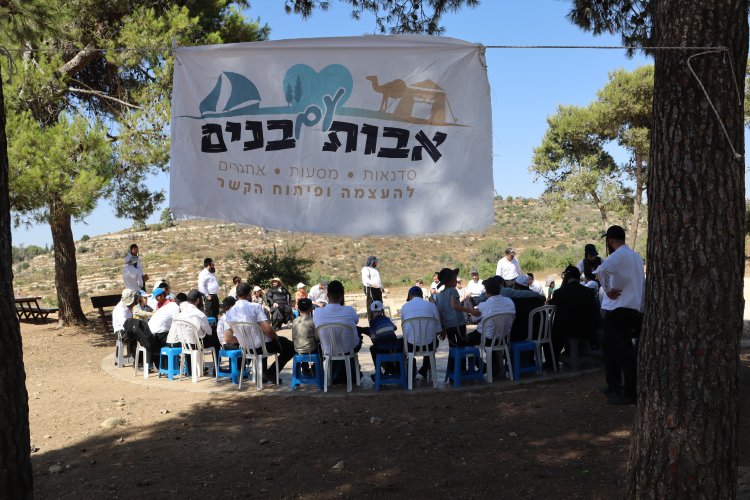 (Photo: Yohanan Katz, Israel Cohen, Meir Drabermediker)
(Photo: Yohanan Katz, Israel Cohen, Meir Drabermediker)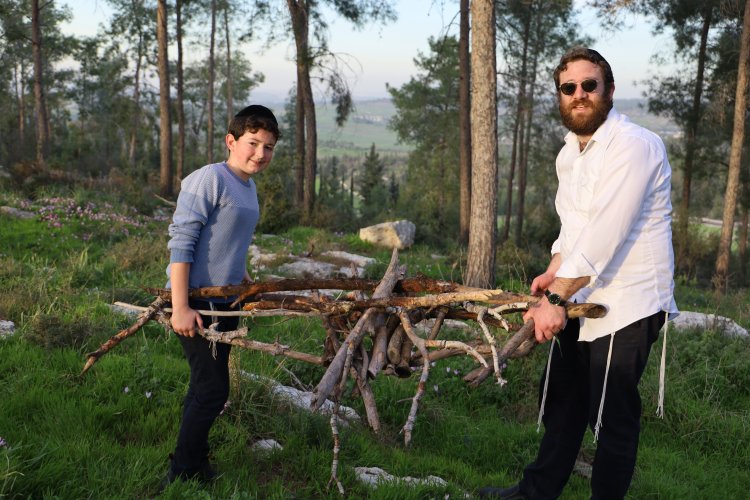 (Photo: Yohanan Katz, Israel Cohen, Meir Drabermediker)
(Photo: Yohanan Katz, Israel Cohen, Meir Drabermediker)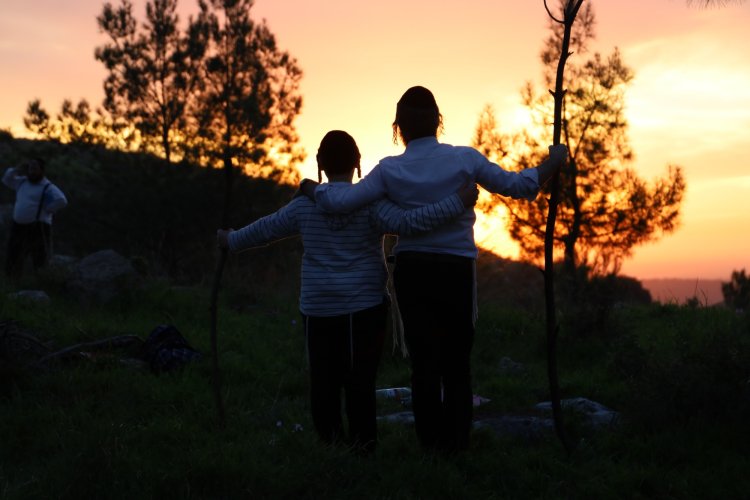 (Photo: Yohanan Katz, Israel Cohen, Meir Drabermediker)
(Photo: Yohanan Katz, Israel Cohen, Meir Drabermediker)A Journey of a Lifetime
It might seem this process ends here, but Katz notes it’s only the beginning. "Every father returns home, then decides how to internalize these experiences and move forward with them. I receive numerous responses about their short and long-term impacts. Some fathers joined the journey after 'their wives urged them to come' yet found it greatly benefitted them personally. Others felt as their sons matured, they grew more distant, and suddenly the opportunity to be together and collaborate arose.
"Indeed, during the program, heartfelt phrases often are uttered, with fathers and sons visibly tearing since they face novel situations never experienced before.
"In one instance, a boy from a family with several struggling siblings joined, with the father choosing him—a boy without any struggles. Later, the boy shared with me he was starting a new yeshiva and found it hard, but his motivator was seeing his father's dedication and care, motivating him to show how he strives and learns for his father.
"Personally, after these journeys, I continue staying in touch with all participants, sending activity ideas for personal home implementation, and fun family games suited for vacations and family bonding. Of course, joining another journey is possible, challenging me to change the entire program biannually to avoid repetition for fresh experiences.
"But most rewarding is hearing people recount how a single event participation led to significant changes, maintaining efforts moving forward. These aren’t necessarily participants joining further organized journeys, but they elevate awareness of the importance, finding time for their sons in various opportunities. It's not a magic cure, and I don't claim to fix the world, but hearing these stories provides immense strength, understanding there's a path to maintaining a good connection with our children, primarily illustrating that they matter most in the world."

